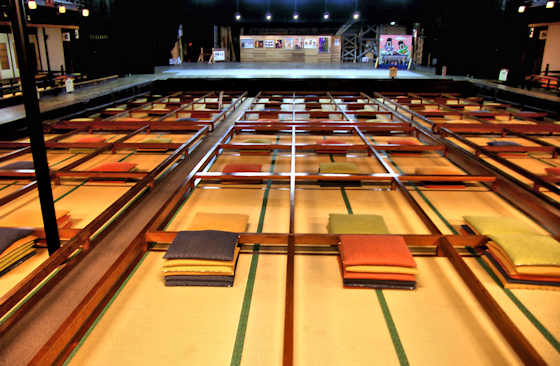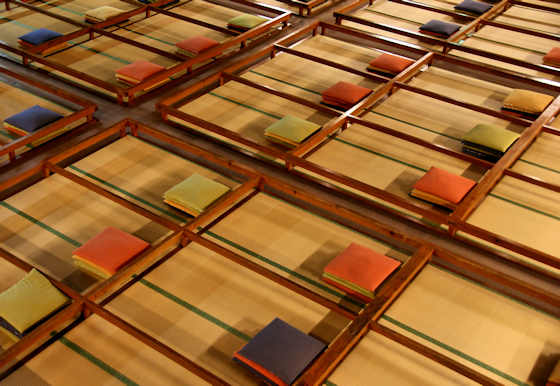I started at temple number 4, Furue-an, as my minshuku was literally right next door. I am going to do a loop around the small peninsula before heading up unto the mountains to the official first temple. In front was a line of 33 Kannon statues representing the Bando Kannon Pilgrimage.
Furue-an can be translated as a hermitage rather than a temple. At a point in the past, a monk or nun lived here, but it is not a temple with a priest. It is maintained by local people, and quite a few of the "temples" on this pilgrimage are hermitages. There is a very homely and friendly atmosphere at them.























